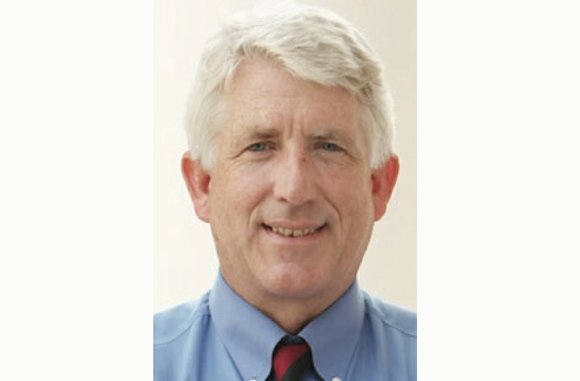Herring: Training key to curb police bias, killings in the state
Jeremy M. Lazarus | 10/2/2015, 8:17 p.m.
Better training.
That’s the way to begin improving relationships between police officers and the residents they serve, particularly people of color, according to Attorney General Mark R. Herring.
At a time when officer actions resulting in African-American deaths and injuries regularly make headlines, Mr. Herring announced he is taking action to upgrade training to head off such incidents in Virginia.
Following months of discussion with law enforcement agencies, community leaders, activists and others, Mr. Herring announced two training initiatives Tuesday in concert with state Secretary of Public Safety Brian J. Moran.
Speaking at The Carillon in Byrd Park, Mr. Herring said the new initiatives would aim to provide current and future law enforcement officers with the classes and information that can help them curb suspicion, hostility and protests.
Mr. Herring’s proposals call for giving law enforcement officers more training on topics ranging from even-handed policing to bias awareness, de-escalation of confrontations, situational decision-making and proper use of force.
The initiatives follow in the footsteps of the Richmond and Henrico police departments, which began offering their officers training in “fair and impartial” policing in December 2014. Former Richmond Police Chief Ray Tarasovic and Henrico Police Chief Douglas Middleton led that effort, bringing in Dr. Lorie Fridell, an expert on the topic of racial bias and police, to head the initial training.
Mr. Herring said the first initiative would involve regional, multiday training sessions for experienced officers. Those sessions would mostly engage police in towns and counties that have difficulty affording such training.
The second initiative would involve the development of materials to be incorporated into the training of new officers. These materials are to be developed over the next year and then made available and accessible to all local and regional training academies, he said.
He said the dual initiatives would “give new and experienced officers additional skills and tactics for safely dealing with confrontational situations and for ensuring that each member of the community is treated fairly and equally … ultimately saving lives.”
“These initiatives are in line with the recommendations of President Obama’s Task Force on 21st Century Policing and with training initiatives supported by the U.S. Department of Justice and its Office of Community Oriented Policing Services,” Mr. Herring said. “They will also complement numerous efforts of local agencies that understand the value of this training and have begun pursuing” even-handed approaches in dealing with the public.
He said the efforts his office is undertaking grow out of “the common goals of ensuring that police can safely and effectively protect our communities, while guaranteeing that everyone is treated fairly and equally.”
Such training is clearly needed, he said, based on high-profile incidents in Virginia and across the country, such as the killings of Michael Brown in Ferguson, Mo., and Freddie Gray in Baltimore, that “have tested the relationships between law enforcement agencies and their communities.”
“Fatal encounters between law enforcement officers and citizens, and the resulting community responses, have forced everyone to take a close look at the way we police ourselves,” he said.
Mr. Moran said the new initiatives would “strengthen efforts” to promote community policing in the state by providing additional resources and tools to “build trust and legitimacy” for officers.
U.S. Rep. Robert C. “Bobby” Scott, D-3rd, praised Mr. Herring and Mr. Moran for helping Virginia “lead the way in promoting better and safer policing.”
Carmen Taylor, president of the Virginia State Conference NAACP, said her organization would seek to be “a valued ally” in this effort and in Mr. Herring’s proposed review of his office’s policies and procedures.
The proposed initiatives also drew plaudits from the Virginia Sheriff’s Association and the Virginia Association of Chiefs of Police, as well as the Central Virginia Chapter of the National Organization of Black Law Enforcement Executives.
“This is an opportunity for the police to receive additional training,” said Morris Roberson of the NOBLE chapter, “and for our communities as a whole to get involved in our own safety and the safety of each other.”







